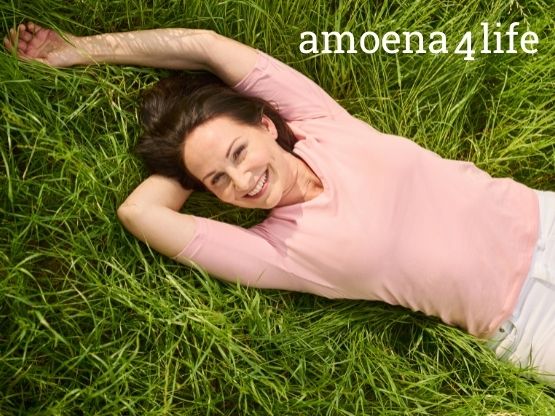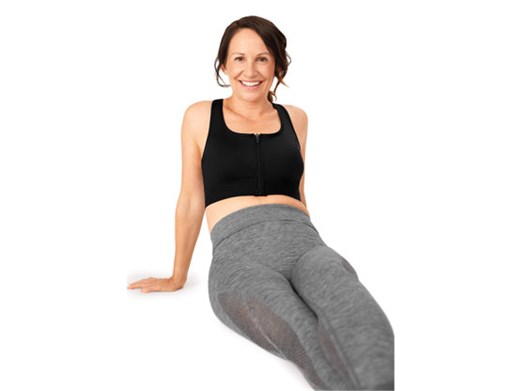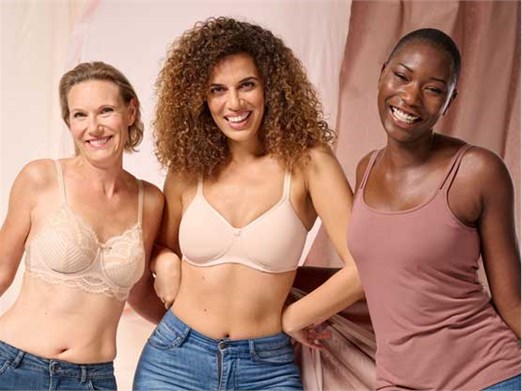Leonie's Breast Cancer Story
Leonie is a joyful confident woman who is a Peer Support Coordinator and has been recognised for distinguished service to the community. More than 30 years ago Leonie found a breast lump. Her daughters were only 4 and 2 years old at the time. She had only stopped breast feeding a couple of months previously so she thought it may have been something to do with breast feeding. We asked Leonie to share her story of the day she was told she had breast cancer.
‘Being a young woman with breast cancer left many questions unanswered’
The day Leonie was told she had breast cancer, in 1987, she found it difficult to tell her husband of the diagnosis. ‘At first I was quite overwhelmed and feeling numb, not really knowing how to react’. Leonie had an appointment with her doctor during her lunch break and from then she didn’t go back to work for about 2 months. ‘Telling my husband about my diagnosis was difficult as I had not told him I thought there was something wrong. The worst days were from the Tuesday when I was diagnosed to the Friday when I had surgery; I cried the whole time and thought I was going to die. Once I had surgery it almost felt like a weight had been lifted from my shoulders and I felt a great relief’.
Her family and friends were her greatest support.
Her employer was also very supportive and gave her the time away from work she needed. ‘I worked through chemotherapy and I was able to work part-time around my chemotherapy “bad” days’.
Leonie had a mastectomy followed by chemotherapy. She said ‘at the time (1987) most women had mastectomies but I asked about the possibility of having a lumpectomy and I investigated reconstruction which was very, very new then. I felt my surgeon explained everything very thoughtfully and thoroughly and I never felt the decisions were not mine to make’.
Leonie explained ‘I had a second opinion and I eventually spoke with an oncologist and I felt well informed about my decision to have chemotherapy however I didn’t really understand that menopause may be a side–effect and I certainly didn’t understand the lifelong effect it would have e.g. fertility, self-esteem, body image, intimacy related issues’.
…. ‘it is what led me to being passionate about peer support and the value of connecting with others’
While Leonie was in hospital she was visited by a peer support volunteer. ‘She was lovely and gave me practical information about breastforms etc but she was an older, single woman and had little in common with my lifestyle. This is all that was available in 1987 and it is what led me to being passionate about peer support and the value of connecting with others’.
On discharge from hospital she ‘felt a little lost’. Her parents were taking care of her daughters to give her time to recover but she missed them and felt she was missing time with them.
When she looked in the mirror for the first time after surgery Leonie remembers thinking ‘what a pity’ and felt sad. It took some time before admitting she wanted to wear a breast form. ‘I felt very self-conscious like everyone could tell I only had one breast and I felt all the other young women were far more attractive’.
I asked Leonie what helped her to relax and recover the most?. She replied ‘I didn’t really. I had two small daughters and a job so life went on. In retrospect this was probably a blessing in disguise because I just had to get on with it’. ‘The chemotherapy put me into menopause. It took another 7 years before I found a doctor who could lead me in the right direction to learn about protecting myself from”old age” such as oesteoporsis and even longer to find out about all the other issues around sexuality and intimacy’.
Help of Support Groups ….. ‘I became a volunteer as soon as I could and I’m still a volunteer with them.
Leonie recounts when she moved to Brisbane and decided she would not work for a while and just enjoy being a mother she contacted the Support Service. Her Grandfather and a good friend had just died from cancer so she felt volunteering would be worthwhile. ‘My father had always taught me about giving back to community. I wanted to speak to people with cancer but they told me I needed to have been diagnosed with cancer myself to do this so my motto is “be careful what you wish for” because only 6 months later I was diagnosed with breast cancer. I became a volunteer as soon as I could and I’m still a volunteer with them’.
‘Being a young woman with breast cancer left many questions unanswered. I kept asking questions and eventually research was undertaken which led to the first young women’s support groups around Australia’.
I asked Leonie how her relationships (working, personal and intimate) had been affected. ‘This is a big question because it took me a long time to learn how to deal with some of these; however, I’ve just had my 40th wedding anniversary so it turned out ok. It was hard at times and I really had to work it out for myself which is why in my work and volunteering now I try to make it a little easier for people diagnosed with cancer’. ‘I didn’t lose any friends and I made many more through meeting others with a similar experience so I feel quite blessed to have this great network of friends after more than 30 years. I did often feel different and less worthy for a long time but not anymore!!
Life after breast cancer
I wanted to find out if Leonie’s perception of (or outlook on) life had changed as a result of her journey? She responded ‘I try to make the most out of opportunities and I try really hard to help others find what they are looking for after their diagnosis. I try to remember to let my family and friends know I care about them. When I don’t feel like doing something I try to make the effort because I know all too well life can change in an instant. I spend time with my husband and I like to travel and have life experiences, money isn’t everything. I make time for my daughters and grand-daughter regardless of how busy I am and I make sure I catch up with my friends regularly’.
Since Leonie’s diagnosis she has channelled her efforts into becoming a consumer advocate for clinical trials and helping women who face the same anxieties as she did.
She is the Peer Support Coordinator at The Wesley Hospital Choices Cancer Support Centre and was a member of the Consumer Advisory Panel (CAP). The CAP was established in 1998 and was the first of its kind in Australia. Made up of seven women from Australia and New Zealand, CAP provides a consumer perspective on the BCT’s research program and all members have had their own unique experience of breast cancer.
Leonie is currently President of Reach to Recovery International a global group committed to improving the lives of those impacted by breast cancer through peer support, advocacy & research.
Leonie is the Recipient of Honorary Degree of Doctor of the University, Griffith University, Brisbane, Queensland, Australia. This award is in recognition of distinguished service to the community, particularly as an advocate for women diagnosed with breast cancer.







